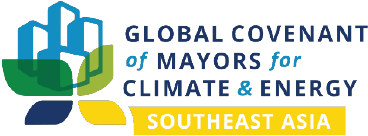Penang, Malaysia | Community-led Initiative for Sustainable Municipal Waste Management
Penang, Malaysia
Date: July 5, 2023

Fast Facts
- Mayor: Ir. Rajendran Anthony
- Population: 1,628,559
- Area: 305.77 Km²
- GCoM Signatory since 2022
Background
Food waste poses significant environmental, economic, and societal challenges, especially as the global population and food demand continue to rise. Managing food waste becomes more challenging in many “developing” countries with limited resources and government intervention in environmental issues. However, social and economic progress should not come at the expense of the environment. By implementing sustainable policies and practices, we can address food waste and promote both development and environmental preservation. [1]
In Malaysia, food waste accounts for an alarming 50% of Municipal Solid Waste (MSW). To alleviate this issue, diverting food waste to composting can significantly reduce the amount of solid waste in landfills, potentially cutting it in half. This sustainable solution not only minimises the environmental impact of food waste but it also adds to waste reduction initiatives and produces useful compost for agricultural use.
By prioritising sustainable practices and adopting innovative approaches, we can tackle the problem of food waste effectively and pave the way for a more environmentally conscious and resource-efficient future.
Solutions Implemented
The Taman Pandan Residents, led by Ms. Loh Poh Chen, initiated a community project focused on zero waste management. This pioneering initiative, driven by the residents of Taman Pandan Apartments, encompasses recycling, composting, and small-scale farming activities. The primary objective of the programme is to promote a clean environment and ensure the well-being of the residents. [2]
The community shares their recycling experiences and educates others on how to incorporate recycling practices into their daily lives through the dissemination programme. Participating apartment dwellers deposit food waste at designated organic waste collection bins, while paper and plastic containers are collected in separate binss The collected food waste is transported to a nearby compost shed for natural composting. The proceeds from the sale of compost and recycled items are reinvested in repairs, tools, and the production of recycled plastic bags made from billboard advertisements. Additionally, the revenue generated from recyclable items is used to subsidize apartment maintenance costs and support charitable donations.
This community-led project serves as a model for zero waste management and attracts both local and international visitors. It not only promotes environmental sustainability but also fosters a sense of responsibility and collective action among the residents.
Results and Solutions Learned
The community-based recycling management project has yielded significant positive impacts in reducing waste sent to the final disposal site. Through this initiative, the approximate income generated from recyclable items ranges from RM 360 to 800. While it is acknowledged that this project alone cannot solve the issues of poverty and excessive waste on its own, it does serve as a replicable model for improving waste management practices and addressing poverty-related challenges.
By duplicating this project in other areas, similar positive outcomes can be achieved. This includes not only reducing the amount of waste that ends up in landfills but also creating income-generating opportunities through recycling activities. This project demonstrates the potential for sustainable solutions that benefit both the environment and the local community by addressing waste management and poverty concurrently.
[1] Karthigayan Gunasegarana, Che Zalina Zulkifli, Sarah Tan Xinhui, Nur Hazlina Abu Hassan, Amiruddin, Bunyamin M Yapid, Suci Ayu Kurniah Putri, Burhanuddin, and Nani Harlinda Nurdini, “Economical Smart Composting Machines to Manage Food Waste, Alleviate Environmental Degradation and Combat Climate Change on Penang Hill,” International Journal of Innovation, Creativity and Change, November, 2019
[2] Khor Hung Teik, “Best practices on Organic Waste Management in Penang,” Climate and Clean Air Coalition, June, 2015, from https://www.waste.ccacoalition.org/sites/default/files/files/best_practices_owm_penang_final_report_0.pdf






